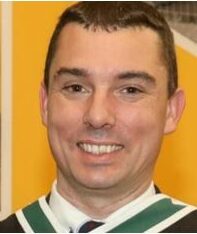
Ireland’s Census 2016 revealed that just one fifth of Travellers aged 15-24 had completed post-primary education. More shockingly only 12 of those had a degree.
As a Traveller Youth, the odds were against me from birth. My family were focused on work, rather than on the value of higher education. Years of poor support from peers and teaching staff chipped away at my determination to finish secondary school and become the first in my family to go to university.
Somehow, I accepted this was not in my future, and I can still remember the feeling of relief that followed this acceptance. However, it was short-lived and was soon replaced with a greater determination to succeed in education.
Shortly after leaving school, I reluctantly accepted a place at St Brendan’s Training Centre, in Loughrea, Co Galway, which supported Travellers in further education.
My first few days were an eye-opener as I quickly realised that I was in an environment that was actively empowering Irish Travellers to be successful in education and employment.
A diverse group of us were studying for the Junior and Leaving Certificate, including Traveller Youth, parents and grandparents. Travellers worked in St Brendan’s as tutors and teachers, and two Traveller women managed the onsite nursery caring for children of parents studying at the centre.
Catherine Cooney, director of St Brendan’s, and the staff, worked tirelessly to ensure that all Traveller students’ academic, financial and well-being needs were addressed. This model ensured that we were succeeding in education, and soon, I began to believe that I may have a chance to go to University.
The educational philosophy underpinning the successful model in St Brendan’s was based on empathy, respect, cultural pride, empowerment of Travellers and an unshakable belief that all is possible if the correct supports are in place. This has strongly influenced and is deeply embedded within all aspects of my professional philosophy.
Now we have an opportunity to learn from the experiences of those who have been supported by St Brendan’s, and others.
The Department of Further and Higher Education, Research, Innovation and Science (DFHERIS), the Higher Education Authority (HEA), the Irish Universities’ Association (IUA), all believe that equity of access to higher education is a national priority.
The third National Access Plan for Equity of Access to Higher Education (2015-2019) set out the current strategy to address under-representation of certain groups in university.
A progress review of participation rates for Irish Travellers in higher education was right – there is quite a task ahead to meet Government targets, and a new strategy and a new level of engagement is needed, with new targets.
St Brendan’s understood that Travellers have particular needs as they seek to access higher education.
Having a whole of education approach is key. Look again at the 2016 Census. It recorded 30,987 Travellers in Ireland – that’s 0.7% of the total population. Almost 60% of the Traveller population was aged under 25, with a large percentage in NUI Galway’s catchment area.
The 2016 Census showed that Travellers account for 1.4% of primary school pupils. At post-primary level in 2018/19, 0.8% of students were recorded as being in receipt of supports for the Traveller community.
At third level, Travellers made up 0.2% of all new entrants in 2017/2018 with a total of 61 Travellers registered as students. Just 1% of Irish Travellers have achieved a third level qualification.
To address the low numbers of Travellers in higher education, a targeted approach from each third level institute is required. In doing so, there must be a strong commitment to implement the actions and recommendations arising from the National Plan for Equity of Access to Higher Education 2015-2019, the Action Plan to Promote Traveller Participation in Higher Education 2019-2021, National Traveller and Roma Inclusion Strategy 2017-2021 and The Implications of Covid-19 for Traveller and Roma transfer to and progression within Higher Education.
At NUI Galway these actions and recommendations align with the values of Respect and Openness in our University’s Strategy 2020-2025 – Shared Vision, Shaped by Values.
The Department of Further and Higher Education, Research, Innovation and Science (DFHERIS) and the HEA are preparing the next National Plan for Equity of Access to Higher Education – the “National Access Plan”.
Equity of access to higher education is a key policy priority, and the plan can be influenced if we speak up.
Within the context of Travellers progressing into higher education, the plans need to develop on the evidenced based record of Travellers strong engagement in further education and build coherent incentivised pathways from further education to higher education.
More than 1,500 young Travellers were in enrolled in further education in 2019. But the current further education to higher education model creates additional barriers for Traveller Youth and hinders any significant progress being achieved.
A key barrier is financial. In my role as Programme Coordinator in NUI Galway’s Access Centre I hear it every day. An 18-year-old Traveller student in further education (Youthreach) receives a weekly payment of €203, but if the same student progresses into higher education and lives within 45km of the institution, they are only entitled to a SUSI grant of €297 per month.
Pathways from further education to higher education must be incentivised. If it is addressed in the next National Access Plan the number of Traveller Youth progressing into higher education through a further education will dramatically increase.
We need a culturally sensitive model that offers one-to-one scaffolding of pre-entry to employment supports to empower Traveller students as they progress to higher education from post-primary and further education.
Universities need to actively support Traveller student leadership, Traveller history and culture initiatives and events to enhance a sense of belonging in higher education.
If implemented, these actions will go a long way to addressing the low numbers of Travellers progressing into third level education and will improve progression, retention and success of Traveller students in higher education.